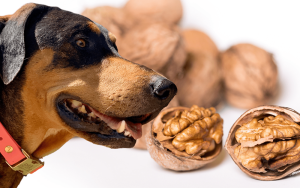Can Dogs Eat Asparagus? A Comprehensive Guide to Asparagus and Your Dog’s Health

As pet owners, we often want to share the same healthy foods we eat with our dogs. Asparagus, known for its numerous health benefits for humans, might seem like a nutritious option to include in your dog’s diet. But can dogs eat asparagus safely? While
asparagus is a low-calorie, nutrient-dense vegetable packed with vitamins and minerals, it’s important to understand how it affects dogs and whether it is a suitable treat for your furry friend.
In this comprehensive guide, we will explore whether asparagus is safe for dogs, its potential health benefits, risks, and how to safely incorporate it into your dog’s diet. By the end of this article, you’ll be able to make an informed decision about
whether to share this vegetable with your dog.
What is Asparagus?
Asparagus is a perennial vegetable that belongs to the lily family. It is typically green, although there are also white and purple varieties. It is a rich source of several key nutrients, including fiber, vitamins A, C, E, and K, folate, and antioxidants.
These nutrients help support various functions in the body, such as boosting the immune system, promoting digestive health, and contributing to overall cell health.
For humans, asparagus is often enjoyed as a side dish or ingredient in salads, soups, and pastas. Given its nutrient profile, it’s no surprise that many dog owners wonder if they can feed asparagus to their pets.
Can Dogs Eat Asparagus?
The short answer is: Yes, dogs can eat asparagus, but it’s important to consider how you prepare and serve it. Asparagus is not toxic to dogs, and it offers a variety of nutrients that can contribute to their overall health. However, just because asparagus
is safe does not mean that every dog should consume it. There are several factors to keep in mind.
1. Health Benefits of Asparagus for Dogs
While asparagus may not be a staple in a dog’s diet, it can offer a number of health benefits when given as an occasional treat. Some of the key benefits include:
- High in Fiber: Asparagus is a good source of dietary fiber, which can aid in digestion and promote healthy bowel movements for your dog.
- Rich in Antioxidants: Asparagus contains antioxidants that help combat oxidative stress in the body, which can reduce inflammation and prevent cell damage.
- Supports Immune Health: The vitamins and minerals in asparagus, such as vitamin C and vitamin E, support the immune system, helping your dog fend off infections and illnesses.
- Low in Calories: Asparagus is low in calories, making it a good snack option for overweight dogs that need to lose or maintain weight.
- Rich in Folate: Folate, also known as vitamin B9, is important for cell growth and repair, making it especially beneficial for puppies and senior dogs.
2. Risks of Feeding Asparagus to Dogs
While asparagus has benefits, it is important to understand the potential risks involved in feeding it to your dog.
- Choking Hazard: Asparagus stalks can be tough and difficult to chew, especially for smaller dogs or those with dental issues. If a dog tries to swallow a large piece without chewing it properly, it could pose a choking hazard.
- Digestive Upset: If your dog is not used to eating fibrous vegetables, asparagus can cause digestive issues such as bloating, gas, or diarrhea, especially if fed in large quantities.
- Potential Allergic Reactions: While rare, some dogs may have an allergic reaction to asparagus. Symptoms of an allergic reaction may include vomiting, diarrhea, itching, or swelling around the face or paws.
- Excessive Intake of Fiber: While fiber is beneficial in moderation, too much can lead to constipation or diarrhea. It is crucial to serve asparagus in controlled amounts.
- Toxicity in Wild Asparagus: Not all asparagus is safe for dogs. Wild asparagus, which can be found in some areas, may contain harmful compounds that are toxic to dogs. Always ensure you are feeding your dog store-bought, safe asparagus.
How to Safely Feed Asparagus to Your Dog
If you decide to share asparagus with your dog, it’s important to prepare it properly and serve it in moderation. Here are some tips on how to safely feed asparagus to your dog:
1. Preparation
- Wash Thoroughly: Before feeding asparagus to your dog, wash it thoroughly to remove any pesticides or chemicals.
- Cut into Small Pieces: Asparagus stalks can be tough, so it’s important to cut them into small, bite-sized pieces to prevent choking.
- Cook the Asparagus: While raw asparagus is safe for dogs, cooking it can make it easier to digest. Steaming or boiling asparagus without added salt, butter, or seasoning is the best method. Avoid using oils, garlic, or other ingredients
that could be harmful to your dog. - Avoid Tough Ends: The tough, woody ends of asparagus should be discarded, as they can be difficult for dogs to chew and may cause digestive issues.
2. Portion Size
Asparagus should be treated as an occasional treat rather than a regular part of your dog’s diet. A few small pieces of cooked asparagus is plenty for a dog, especially if they are not accustomed to eating vegetables. Start with a small amount and observe
for any adverse reactions. If your dog experiences any signs of gastrointestinal discomfort or allergic reactions, discontinue feeding asparagus and consult your vet.
3. Monitor for Signs of Digestive Issues
If you notice that your dog has trouble digesting asparagus, or if they experience any discomfort after eating it, you should stop feeding it to them. Symptoms of digestive upset may include vomiting, diarrhea, or excessive gas. These signs indicate that
asparagus may not be a good fit for your dog’s diet.
Can All Dogs Eat Asparagus?
While asparagus is safe for most dogs, there are certain cases where it might not be suitable.
- Puppies and Senior Dogs: Puppies have developing digestive systems, and senior dogs may have more sensitive stomachs. It’s best to introduce asparagus gradually and monitor for any issues.
- Dogs with Preexisting Health Conditions: Dogs with certain health conditions such as kidney problems, gastrointestinal issues, or pancreatitis should avoid high-fiber foods like asparagus. If your dog has any health concerns, it’s
always a good idea to consult with your veterinarian before introducing new foods. - Small Dogs: Due to their smaller size and more delicate digestive systems, small breed dogs may be more prone to digestive upset when eating vegetables like asparagus. If you have a small dog, consider serving asparagus in even smaller
portions.
Alternative Vegetables for Dogs
If your dog is not a fan of asparagus or if you’re looking for other healthy vegetables to feed them, there are several options you can explore:
- Carrots: Carrots are rich in vitamins and low in calories, making them a great snack for dogs. They’re also a good source of beta-carotene, which is beneficial for your dog’s vision and immune health.
- Green Beans: Green beans are another healthy, low-calorie vegetable that can aid digestion and help dogs maintain a healthy weight. They can be served raw, steamed, or cooked.
- Sweet Potatoes: High in fiber and rich in antioxidants, sweet potatoes are a nutritious treat for dogs. Cook them thoroughly before serving to avoid any digestive issues.
- Pumpkin: Pumpkin is a great source of fiber, which can help regulate your dog’s digestive system. It’s particularly beneficial for dogs with constipation or diarrhea.
Conclusion
Asparagus is generally safe for dogs when prepared and served correctly. It offers a variety of health benefits, including vitamins, antioxidants, and fiber, but it should only be given in moderation. Keep in mind that not all dogs will tolerate asparagus
well, and it may cause digestive upset in some dogs. Always monitor your dog for any signs of discomfort after introducing a new food, and consult with your veterinarian if you have any concerns.
By following the guidelines on preparation, portion size, and monitoring your dog’s reaction, you can safely share this healthy vegetable with your pet as an occasional treat. If asparagus is not suitable for your dog, there are many other vegetables
that can provide similar nutritional benefits, so don’t hesitate to explore other healthy options.
In the end, the health and well-being of your dog should always be the top priority. Always consult with a vet if you’re unsure about introducing new foods into your pet’s diet.






